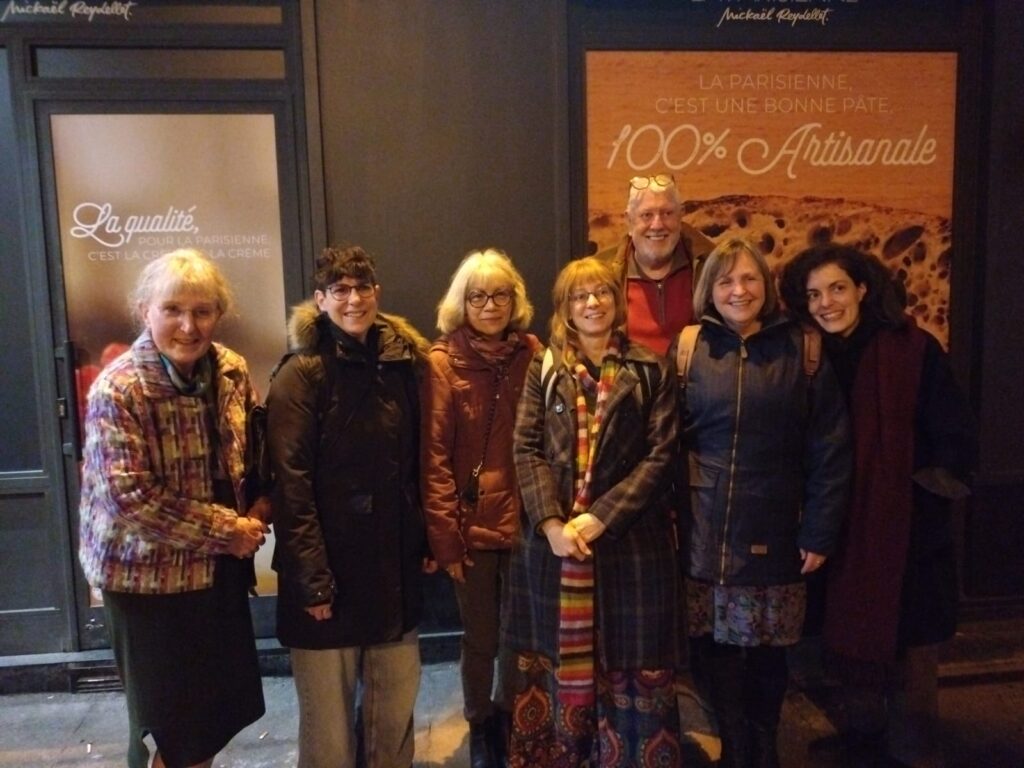
The ELF Bronchiectasis Patient Advisory Group recently attended the 4th European Bronchiectasis Workshop (EBROW) in Paris. Here, they share the key takeaways from the event.
From 20–22 February 2025, the ELF Bronchiectasis Patient Advisory Group (PAG) attended the 4th European Bronchiectasis Workshop (EBROW 2025) in Paris. The event brought together leading experts, clinicians, researchers and patients to discuss the latest developments in bronchiectasis care and treatment.
This year’s event showcased the latest research on diagnosing, managing and preventing bronchiectasis. As the official facilitators of patient involvement at EBROW 2025, ELF was proud to ensure the patient voice remained at the heart of the discussions—an opportunity made possible through our partnership with EMBARC.
A highlight of this year’s event was the active participation of ELF’s PAG members. Rachael, who participated in the opening of the conference, had an important open conversation with Dr Fiona Mosgrove, about reducing delays in the diagnosis of bronchiectasis. Rachael discussed the important role of early intervention in improving patient outcomes. Reflecting on the experience, Rachael shared:
“The organisers are very good at making it feel as if patient involvement is not only important but absolutely central, and it seems they’d like even more of it.”
Throughout the event, patients also took part in practical sessions, working alongside clinicians to demonstrate airway clearance techniques. This hands-on involvement showcased real-life self-management methods and gave patients the opportunity to share their expertise with professionals. Rachael added:
“I didn’t feel separate from the researchers and clinicians at the conference – I felt as if I was also an expert.”
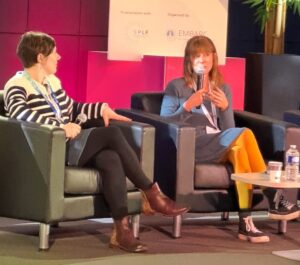
Rachael speaking with Dr Fiona Mosgrove
The ‘Patient Theatre’ sessions were another key part of the event, where clinicians summarised the main points from each day for the patients attending in person and online, making it easier for them to understand the latest developments in the field.
Other members of the PAG also shared their perspectives and expertise throughout the event, highlighting the diverse roles that patients play in shaping bronchiectasis care.
Justine and Alan participated in the open-to-the-public session, focusing on The Needs of Patients and Caregivers with Bronchiectasis and The Burden of Bronchiectasis, respectively.
Justine shared valuable insights on the emotional and physical impacts on patients and caregivers, highlighting the important role of support networks for those living with bronchiectasis. Alan, drawing on his personal experiences with the condition, offered a perspective that highlighted both the challenges and the positive strides made in managing bronchiectasis. He acknowledged the difficulties that come with the condition but also discussed how increasing knowledge and improved treatments have enabled him to better manage his bronchiectasis and live a fulfilling life. He noted:
“I am optimistic about my bronchiectasis and my future. Knowledge and treatments are getting better, and I have learnt how to live with and manage my bronchiectasis and enjoy life.”
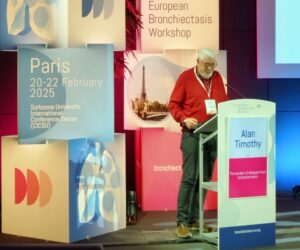
Alan sharing his experiences with bronchiectasis and hopes for the future
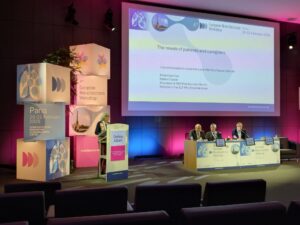
Justine discussing the importance of bronchiectasis support networks
Donna, another ELF PAG member, co-chaired a session on the vital roles that specialist nurses, diet and psychological support play in managing bronchiectasis. The discussion highlighted how a holistic, multidisciplinary approach can significantly improve the quality of care and outcomes for patients. Reflecting on the importance of patient involvement, Donna said:
“I think without a patient presence, it could be easy for researchers and physicians to slide into their more standard modes of focusing on their work without taking patient perspectives and needs into account. Being at the conference at the same time was a strong reminder that patient input is necessary to have useful outcomes, that without such considerations fabulous but maybe useless discoveries could result.”
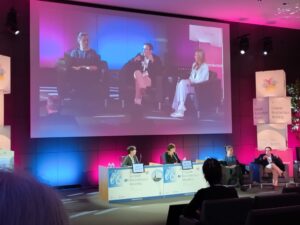
Donna highlighting how to improve outcomes for people with bronchiectasis
Ed, a member of the ELF Council and Chair of the ELF Youth Group, shared his personal journey as a young person living with bronchiectasis during the paediatric session. Ed’s story underscored the unique challenges faced by children and young adults with the condition, and his reflection on the importance of early diagnosis resonated with many attendees. Ed shared:
“Diagnosis with bronchiectasis was really important for both my treatment and my feelings towards my lung health.”
Zena, Ed’s mother and co-chair of the paediatric bronchiectasis session, also played a key role in addressing the importance of focusing on the needs of young patients and their families in managing the condition.
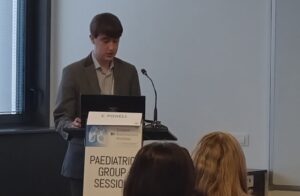
Ed discussing the challenges of living with bronchiectasis as a young person
A theme throughout EBROW 2025 was the critical role that patient involvement can play in shaping both research and care. Throughout the event, it was clear that the perspectives of patients were not just welcomed but central to the discussions.
Eliza, a member of the Bronchiectasis PAG who attended the event in Paris, reflected on how patient engagement enriched the conversations and fostered collaboration between patients and experts. She said:
“The atmosphere was friendly and there was a lot of interaction between patients and experts. Most importantly, I felt that all of us patients were regarded as equal discussants. Patients raised numerous points that seemed to truly enrich the dialogue. Also, for us it was priceless to be able to have access to all this important information about our condition and to be able to discuss it directly with the absolute experts in this field.”
EBROW 2025 was a valuable opportunity for patients and experts to exchange knowledge and insights. The event highlighted how essential patient voices are in improving care and advancing research in bronchiectasis.
We would like to extend a huge thank you to the patients who represented ELF at the event this year. Their contributions and insights were invaluable in ensuring the patient perspective was heard and valued. We would also like to thank the Lena Group for their ongoing support and commitment to improving the lives of those affected by bronchiectasis.